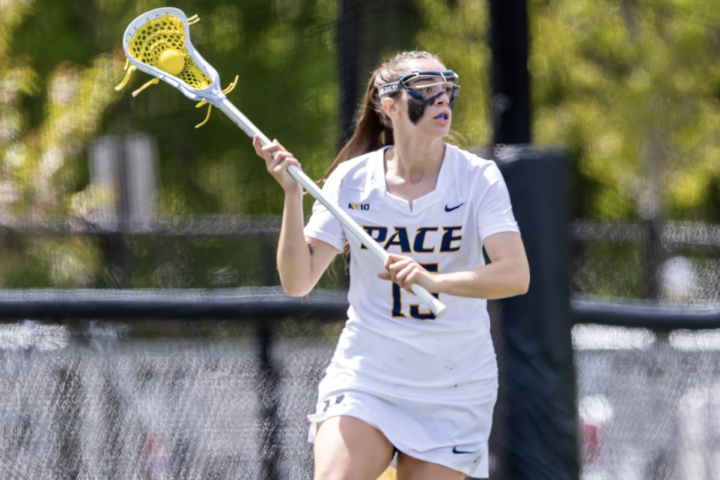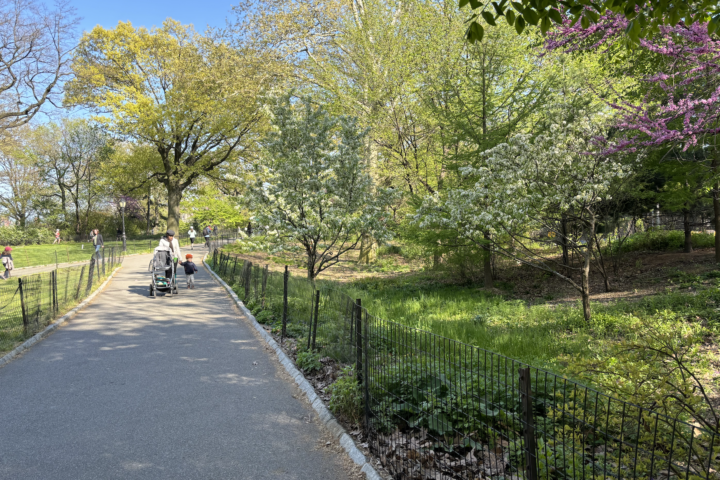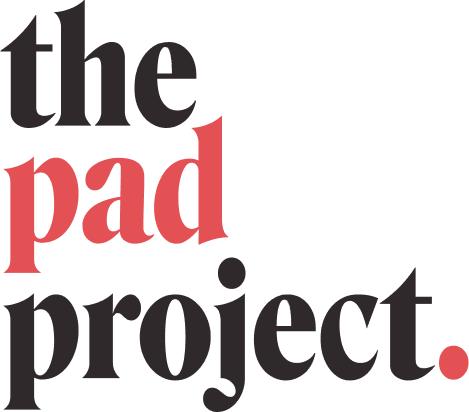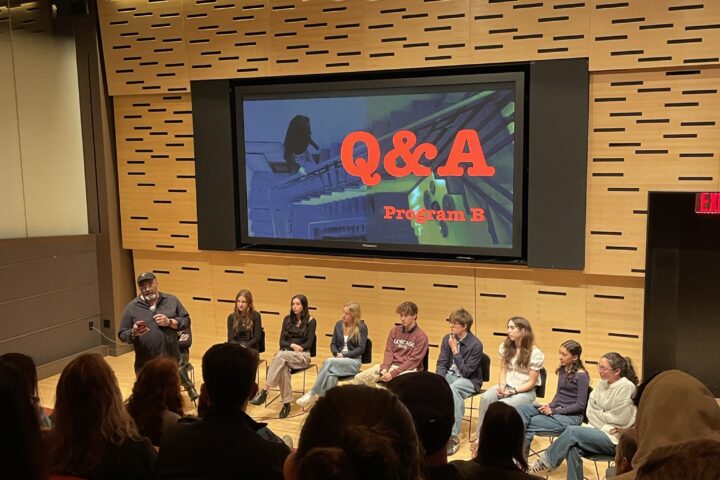The day was September 8th, 2022 and a group of eager young historians immersed in the anticipation of a new school year, grade and history teacher found their seats in room 514. Somewhere between conversations of summer and ruminations of what high school was going to entail, Raquel Maldonado entered the classroom with a vibrant disposition and compelling promises of what her Modern World History course would encompass. She discussed how the class would take on an analytical and comparative lens while exploring culture, government and religion across global societies. She verbalized her commitment to rejecting the typical Eurocentric narrative that history classes tend to take on. All the while, she pushed herself to discuss places she had not in previous years: like Australia, for one.
Though these initial remarks sparked intrigue and excitement across soon-to-be students of hers, it is the philosophical way in which history is continually examined in her class that has led it to become a highlight on the schedules of many. I am lucky enough to be one of the students who has Maldonado’s class to look forward to. I sat down with her to talk about her courses this semester, as well as the experiences that have led her to become a storyteller, historian and teacher.
To focus our interview, I began by inquiring about what Maldonado wants readers to know about her. She discussed how readers should know about her enthusiasm surrounding her involvement in the Latinx community and how she hopes to become a resource for Latinx students at Fieldston. She also emphasized how she aims to support families new to the United States via helping alleviate the sentiment of “feeling like an outsider.” Maldonado shared that though she was born in the U.S, she has spent recent years living in Puerto Rico and her personal experience of moving could aid her in helping said new U.S families.
Maldonado then spoke on her time at Fieldston thus far. In her eyes, the values Fieldston holds have the capacity to impact interactions between students and teachers alike and are what fundamentally give the school its progressive reputation. She said that “it is really nice to be at a school that is a progressive institution and anchors itself in progressive values and centering student voices. All schools say that they center student voices, but it does feel like the people- both teachers and administrators- are trying to listen to students which has its challenges, but in the long run is really important.”
Seeing as Maldonado’s own class is an example of how centering student voice is crucial to providing an optimal analytical learning experience, I asked her about how the lessons she has learned throughout her career as a teacher coupled with values of amplifying student perspective play into the classroom environment she currently fosters. She expressed that teaching history is challenging in that everything one really needs to know resides within their cell phone. However, she wants her students to have the ability to form beliefs about, curate, understand and analyze information that is so easily accessible. This goal is attained through getting kids to think about the history they are being taught on a multifaceted level and share whatever musings come to mind in the question-based, supportive space that is her classroom.
She went on to say that she tries to show she is excited about and interested in history not only as a means of encouraging students to take on a similar attitude towards the subject, but because she recognizes the vast majority will forget all they have been taught in a few years. Though this realization may seem harsh to many, for Maldonado it is a motivator to place emphasis on the feeling of being in her class. She noted, “I don’t remember any of my teachers, not even my history teachers, but I do remember how I felt in each of their classrooms.”
Maldonado strives to give her students a class experience to remember by assigning essays over tests, therefore prompting her young historians to actively engage and grapple with the material they have learned as opposed to simply recalling it. This philosophy inspired my next question: “I know you are pursuing a master’s in literature. History and writing both entail the telling of multiple stories, so what prompted you to want to share or teach the stories you have learned and much less make storytelling your profession? How do you feel you are able to better teach and gauge understanding of stories via assigning essays rather than tests in your curriculum?”
The query lent itself to a spectrum of answers and Maldonado chose to respond with, “I think history is really the story of people and the reason why I like the history department here at Fieldston is because history is seen as a narrative, or at least that’s the understanding we have of it nowadays in 2022. We have so much access to facts and what I aim to do as a history teacher is show how we can weave together those facts to create a narrative, which is what storytellers do. I think that there is a power within history, even if it is a history that is not really reflective of you or your experiences. There’s a way we can pull together facts to make a narrative that’s important to us, so I try to do that. We find ourselves on the page as we write, either within our words or stringing together our words to make our ideas concrete. It’s important to write and really reflect on things as opposed to summarizing them. It’s important to think about how we feel about events and you can’t do that with a multiple choice question.”
This was a sentiment that rang especially true, for one’s own perspective on history differs depending on their worldview and identity. The reflective aspect of Maldonado’s class validates and encourages the expression of that idea. Seeing as I am merely a student in her 9th Grade Modern World History class, I wondered if her other sections were equally centered around prioritizing analysis over memorization. Maldonado also teaches an elective course called Puerto Rican History and next semester will embark on teaching Comparative Government. I asked if the way she structures and teaches both courses differs depending on the topics and her view of the material, to which she responded that she does indeed teach Puerto Rican History differently than she does Modern World History, in part because the students are older and more experienced writers in her Puerto Rican History class so she does not need to review rudimentary essay-writing topics, but also because the content of the class is so close to home for Maldonado.
“I find that class a lot harder to teach because it’s so personal because I just left Puerto Rico and I still have lots of complicated, guilty feelings about leaving Puerto Rico. There’s a way that I’m teaching about me and one might think because it’s so close it’s so easy to talk about, but I feel it makes it even harder. In that class, any kind of idea of history being objective is just thrown out the window because it’s just… not.” Maldonado reflected on how her Puerto Rican History class has allowed her to become closer to history because of the class’s personal connotations. She shared that many of the students enrolled in the course have a connection to the island and may be wanting to learn more about themselves– a sentiment Maldonado regarded as “beautiful” and “something to honor as a teacher.” The class is also her own homage to her identity and journey as a Puerto Rican individual.
After Maldonado’s thoughtful commentary on what being an educator and storyteller looked like through her perspective, I was curious about her career path and asked the obligatory, “What inspired you to become a teacher?” question. Maldonado’s route to a job in education began in undergrad. Driven by her love of reading, writing, learning and libraries, she began to apply to PhD programs in the pursuit of a position as a college professor. She ultimately stopped the application process, feeling it was too distant from what she truly cared about at the time- “[her] community in Brooklyn and supporting Black and Latinx communities in poorer spaces throughout New York City.”
Maldonado took up a role as a public school teacher though was quickly burnt out. She then moved to Puerto Rico, where she worked in various restaurants. Following the devastating Hurricane Maria of 2017, restaurants began to close as an ongoing lack of water and electricity inhibited them from operating as usual. In search of a stable job, Maldonado stumbled upon a private school in San Juan in need of a history teacher because theirs had moved to the United States due to the hurricane. The rest was history, so to speak, as Maldonado felt the occupation “brought [her] back to where [she] wanted to be. Although [she] loved the kitchen because [she] loved working with [her] hands, creating things and serving people, [she] felt there was an intellectual aspect missing and going back into the classroom fed into the intellectualism that [she] missed.”
Maldonado hopes people not only in the Fieldston community, but society in general understand that “the way [she] view[s] the world and her job come from her experiences as a mother, working class person and person from a colonized place. Those three realities shape the way [she] understand[s] her role at Fieldston, in the United States (the place that is colonizing the place [she] is from) and the way [she approaches] history. [She] cannot separate all of these factors from her working class roots and the fact that [she] is the first person in all of her family to graduate from college.” She stated that each of these components dictate how she comes into and experiences the space that is Fieldston, but also that they emerge and interact with one another to form her identity in different ways. She believes the intersectionality of one’s own identity is what really proves history is a narrative as it is something for everybody to look at under a slightly different lens.
On a note of advice, Maldonado encourages students current and future to “advocate for themselves and ask for the extension- always ask for the freaking extension. It’s not that serious, [she] validate[s] and respect[s] the stress that school can bring, but from an adult point of view- you’ll be okay and you’re doing a great job. Your teachers are humans and they may have things going on and appreciate when you feel seen, but love when they feel seen as human beings as well.”






